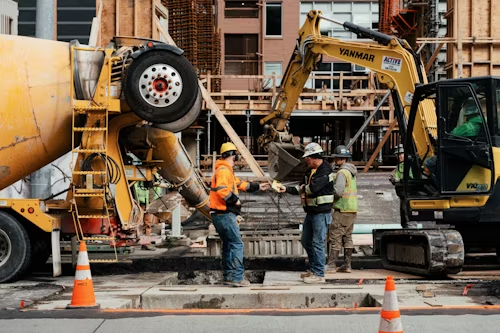
Colorado’s $33 billion construction industry, once a driver of the state’s rapid growth, is now reeling from the combined impact of tariffs and tightened immigration enforcement — policies that builders say are inflating costs, reducing labor availability, and threatening the pace of housing and infrastructure development.

A recent report from Colorado’s Office of State Planning and Budgeting highlighted how tariffs on key building materials like steel, aluminum, and copper have pushed prices up 20–40% since 2020. These increases have raised overall project costs by as much as 15–25%. For homeowners, that translates to significant sticker shock. A new house priced at $750,000 now costs $30,000 to $45,000 more to build.
The state’s construction leaders warn that this isn’t a temporary blip. Material prices remain volatile, and many projects are being delayed or scaled back as firms struggle to manage higher expenses.

At the same time, federal immigration crackdowns have thinned construction crews across Colorado. A nationwide survey by the Associated General Contractors of America found that nearly one in four Colorado firms lost workers due to stepped-up enforcement actions. Fourteen percent of companies reported employing workers under DACA or Temporary Protected Status, while another 27% said they weren’t sure — highlighting the fragility of the labor pipeline.
Denver, in particular, relies heavily on foreign-born workers to fuel its construction workforce. Nearly 20% of the city’s builders are noncitizens, compared to 17.5% nationwide, according to U.S. Census data. This dependency means that federal immigration enforcement has an outsized effect on the local labor supply.
The broader national outlook isn’t much better. The U.S. construction sector shed jobs for the third straight month, according to the latest federal jobs report. Analysts point to the dual pressures of higher interest rates, which dampen demand for new projects, and stricter immigration enforcement, which limits the number of available workers.
The consequences ripple far beyond the industry itself. With higher building costs and fewer workers, affordable housing projects become harder to finance, and infrastructure improvements take longer to deliver. For a state like Colorado — where population growth and housing shortages already create intense pressure — these challenges could further exacerbate affordability issues and slow economic momentum.
Industry leaders caution that unless policymakers address both material pricing and labor shortages, the slowdown could deepen, leaving Colorado struggling to keep up with the needs of its residents.
Originally reported by Alayna Alvarez in Axios Denver.